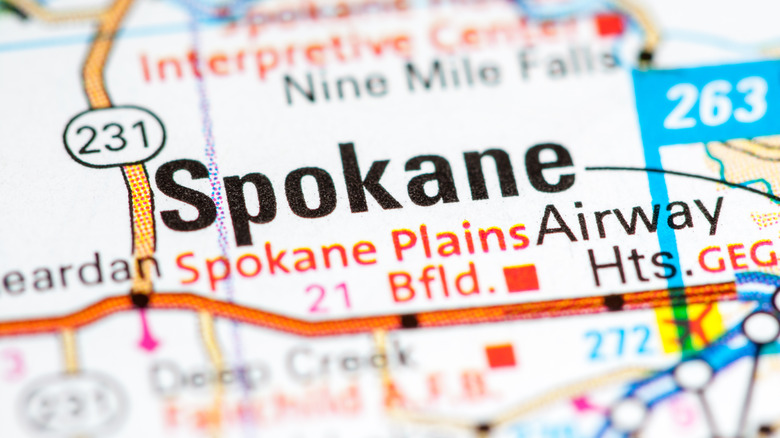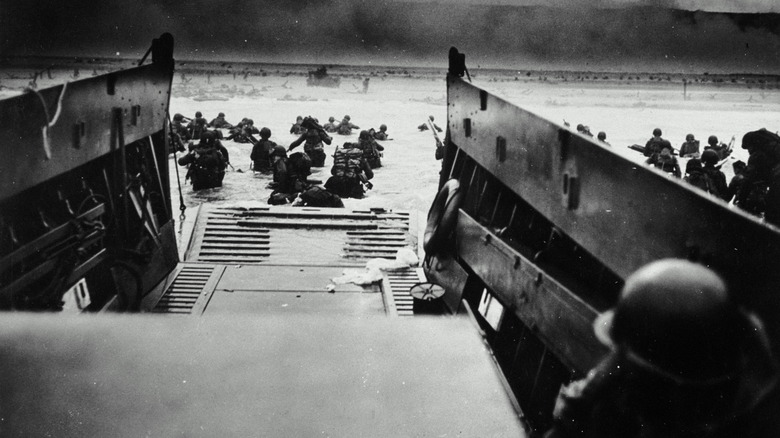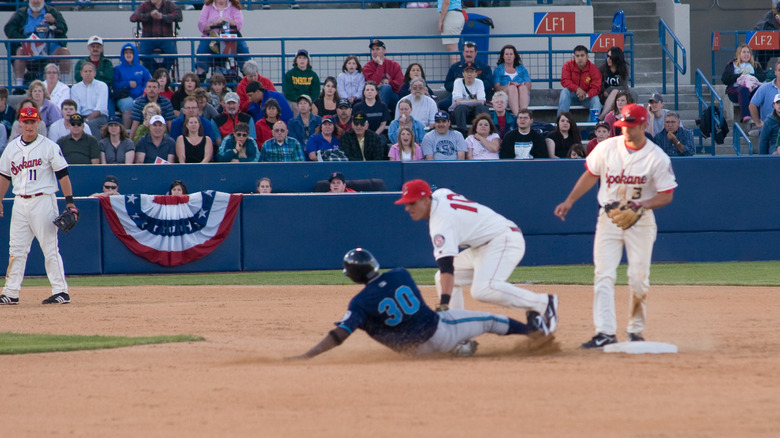The Tragic 1946 Spokane Indians Bus Crash
One of the worst tragedies to strike organized sports in the United States happened on November 14, 1970. As History reports, members of the Marshall University football team, plus several support staff and boosters, were on a chartered jet that crashed just a few miles from its destination, killing everyone on the plane. The tragedy inspired the 2006 Disney film "We Are Marshall."
Decades earlier, a tragedy befell an American sports team, claiming the lives of a number of its players. As the Baseball Hall of Fame reports, in 1946, a bus crash claimed the lives of nine members of a minor-league baseball team, and severely injured the remaining six men who were on the bus that day. What's more, the crash occurred at a time when things were looking up for that particular team, and in a larger sense, were looking up for baseball and for the country. Further, the incident is a metaphor for the resounding resilience of people — athletes, in particular — when the chips are down.
World War II almost ruins baseball
Professional (and to a lesser extent, amateur) athletes are usually young people in excellent physical shape and in the prime of their lives. Know what other industry requires physically-fit men and women in the prime of their lives? Warfare. And when World War II came calling, athletes of all stripes were called up for the war effort. That, of course, devastated professional sports, as entire rosters were called up into the armed services. Still, baseball remained popular during the war, according to Bleacher Report, and athletes who did not or could not serve in the war played on the field.
It wasn't just major professional sports that suffered during this time period, however. Minor league baseball, which, according to Samford University, has been immensely popular for a century, was big during this time period, particularly in remote parts of the country that were hundreds, if not thousands, of miles from the nearest major-league team. Spokane, Washington's minor-league team, the Indians, also suffered from losing athletes to the war effort.
Things were looking up
By 1946, World War II was in the rear-view mirror, and the country was picking up the pieces. Athletic rosters were once again filled with players who, months earlier, had been brought into the war effort. In Spokane, Washington, the Western International League (the minor-league association that managed the Indians) was playing again after having been shuttered for three years, according to the Baseball Hall of Fame. The Indians had a full roster and, that summer, were competitive on the field.
On June 24, 16 members of the team boarded a bus headed for Bremerton, Washington. One player, third baseman Jack Lohrke, learned he'd been called up to another team and got off the bus. That may have saved his life.
As Fox Sports reports, traveling along twisty mountain roads and in bad weather conditions, and the vehicle began to slide while going down a hill on the wet road. (The Baseball Hall of Fame claims that the driver had swerved to avoid an oncoming vehicle.) Regardless of what precipitated the accident, the bus rolled several hundred feet into a ravine, and the gas tank exploded. Six players and coaches died at the scene, and three more would die of their injuries in the coming days.
The aftermath
The event was a devastating tragedy, not just for the team, but for the entire city of Spokane as well, reports Fox Sports. The immediate problem facing the team — and, in a broader sense, its league — was that the 1946 season was still going on. The Indians not only suffered from a terrible tragedy, they also now had a severely-depleted team. "There is no league rule covering such a terrible situation," said Robert Abel, president of the Western International League, at the time (per the Baseball Hall of Fame).
In a show of sportsmanship for the ages, other teams in the league lent their players to the Indians, and the team resumed play on July 4. Around town, individuals and teams raised money for the families of the deceased, netting over $118,000 — a staggering sum in those days. To this day, the 1946 bus crash is part of the Indians' identity, and in a larger sense, is part of Spokane's identity, notes Fox Sports. To this day, the team commemorates the bus crash on the field.



